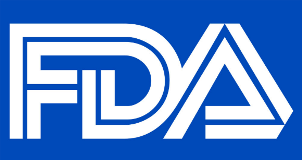
Sign the ADA's Petition to the FDA Regarding Direct of Consumer Orthodontic Aligners
Treating patients, improving health and making a difference in patients’ lives is what drove many of us to become part of this amazing profession. I believe, and I’m sure you do, too, that making a difference also means standing up for patients and the profession through advocacy.
On Feb. 25, a group of ADA leaders, including myself and key ADA staff met with senior officials at the U.S. Food and Drug Administration (FDA) in Washington, D.C., to discuss direct to consumer orthodontic aligners.
Our chief concerns centered on patient safety; transparency in diagnosis and treatment planning; and patient recourse when the results are not positive.
As a result of this meeting, ADA leaders determined a citizen petition should be filed. The petition was filed on April 25 and is now posted at: ADA citizen petition.
ADA science and government affairs staff will continue to follow up on the status of the petition with key contacts at the FDA.
Please know that dentists and the public can use the FDA’s MedWatch voluntary reporting form to inform the FDA about problems patients encounter with direct to consumer products, such as aligners, partial dentures and snoring appliances. More general information about the FDA medical device reporting program can be found on the FDA's website.
If you are asked about the issue of “DIY dentistry,” the ADA offers these talking points that you can share with your patients:
- The American Dental Association and member dentists across the country are dedicated to the health and safety of the patients they serve.
- ADA policies oppose Do-It-Yourself Teeth Straightening and Direct to Consumer Dental Laboratory Services because dentists are concerned about the potential for irreversible harm to patients.
- For example, orthodontic treatment, if not done correctly, could lead to potential bone loss and receding gums, changed bites, and other issues.
- The ADA believes that for the health and well-being of the public, patient supervision by a licensed dentist is necessary for all phases of treatment.
- You can find more information on MouthHealthy.org, the ADA’s website for the public atMouthHealthy.org/DIYdentistry.
Sincerely,
Jeffrey M. Cole, D.D.S., M.B.A.President
American Dental Association

